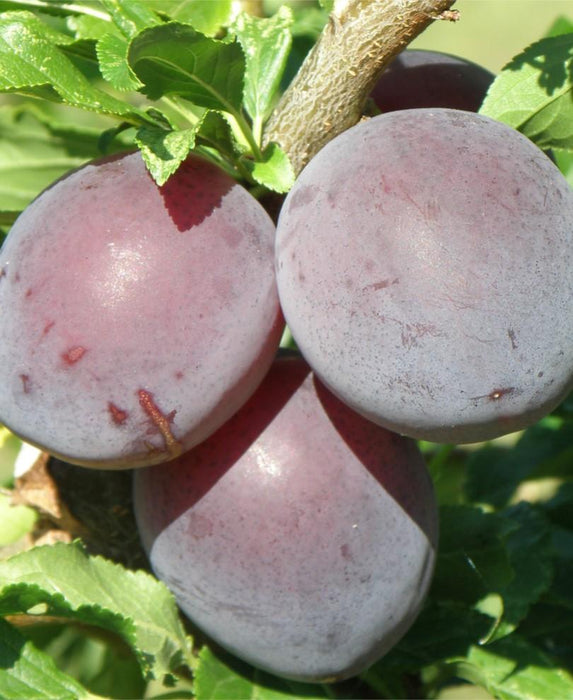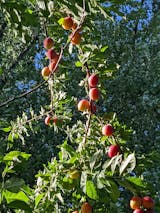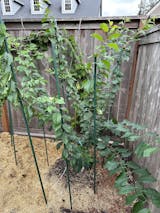
Kuban Comet Asian Plum
Prunus domestica 'Kuban Comet'
A unique cultivar from Krymsk, Russia. This teardrop-shaped, clingstone plum has bright yellow, very sweet flesh. Kuban Comet is extremely hardy, so it thrives in cold climates. The self-fertile, dwarf tree, which reaches about 10' tall, is very productive and easy to grow. 2 inch-long, yellow-orange fruits turn red when fully ripe in late July, and the tart skin resists cracks. Mature tree will usually require supporting the long, wide branches before harvest since they will bend deeply under the weight of all their fruit!
An unusually early bloomer, it is in bloom along with Asian plums here in the PNW. Not good to use as a pollinizer for other Euro plums.
Cold Hardy to USDA Zone: 4
Mature Height: 10'
Sun: Full Sun
Ripening Time: July - August
Pollination: Self Fertile
Rootstock: St. Julian A
Read our Plum Growing Guide






